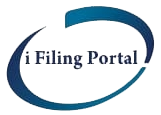Tax Filing
Tax filing is a crucial aspect of financial responsibility for both businesses and individuals. Understanding the intricacies of tax laws, meeting deadlines, and maximizing available deductions are essential for compliance and financial well-being. In this comprehensive guide, we’ll explore the key elements of tax filing for businesses and individuals, providing insights into the processes, obligations, and strategies to navigate the complex world of taxation.
For Businesses
Understanding Business Taxes
Corporate Income Tax:
- Filing Entity: C corporations file corporate income tax returns.
- Tax Rate: Rates vary, and deductions may apply.
Pass-Through Entities:
- Flow-Through Taxation: Businesses like S corporations and LLCs pass income to owners.
- Individual Tax: Owners report business income on their personal tax returns.
Self-Employment Tax:
- Sole Proprietors: Pay self-employment tax for Social Security and Medicare.
- Rate: 15.3%, with adjustments for income thresholds.
Employment Taxes
Payroll Taxes:
- Employee Withholding: Deduct income tax, Social Security, and Medicare from employees’ paychecks.
- Employer Contributions: Contribute to Social Security and Medicare on behalf of employees.
Form W-2 and 1099:
- Employee Reporting: Issue W-2s for employees and 1099s for contractors.
- Deadline: Provide forms by January 31.
Quarterly Estimated Taxes
Self-Employed and Corporations:
- Requirement: Pay estimated taxes quarterly.
- Calculation: Based on projected annual income.
Business Deductions and Credits
Qualified Business Expenses:
- Deductions: Deduct eligible business expenses, including rent, utilities, and supplies.
- Documentation: Keep detailed records to support deductions.
Tax Credits:
- Research Credits: Explore available tax credits, such as research and development credits.
- Savings: Credits directly reduce tax liability.
Annual Business Tax Returns
Form 1120 (C Corporations):
- Filing Deadline: Due by the 15th day of the 4th month after the fiscal year-end.
- Extension: Extensions are available if needed.
Form 1065 (Partnerships):
- Filing Deadline: Due by the 15th day of the 3rd month after the fiscal year-end.
- K-1s: Provide Schedule K-1 to partners.
Form 1120S (S Corporations):
- Filing Deadline: Due by the 15th day of the 3rd month after the fiscal year-end.
- K-1s: Provide Schedule K-1 to shareholders.
For Individuals
Individual Income Tax
Form 1040:
- Filing Deadline: Generally, April 15.
- Extensions: Extensions are available but don’t extend the payment deadline.
Tax Brackets:
- Progressive Tax System: Tax rates increase with income.
- Marginal Rates: Different rates apply to different income levels.
Employment Income and Withholding
Form W-2:
- Income Reporting: Employers provide Form W-2 detailing income, taxes withheld.
- Tax Withholding: Employers withhold federal and state income taxes.
Form 1099:
- Non-Employee Compensation: Independent contractors receive Form 1099-NEC.
- Self-Employment Income: Report income on Schedule C.
Deductions and Credits
Standard Deduction vs. Itemizing:
- Choice: Choose between the standard deduction and itemizing deductions.
- Considerations: Consider mortgage interest, medical expenses, and charitable contributions.
Tax Credits:
- Child Tax Credit: Available for qualifying dependent children.
- Education Credits: Benefits for education expenses.
Retirement Contributions and Accounts
401(k), IRA Contributions:
- Pre-Tax Contributions: Contribute to retirement accounts for tax advantages.
- Limits: Be aware of contribution limits.
State Income Taxes
State Filing Requirements:
- Residency: File state income taxes based on residency.
- Forms: Use state-specific forms and guidelines.
General Considerations for Businesses and Individuals
Recordkeeping and Documentation
Importance:
- Audit Preparedness: Maintain records for at least three years.
- Supporting Deductions: Documentation is crucial for deductions and credits.
Tax Planning Strategies
Year-Round Planning:
- Strategic Planning: Plan throughout the year to minimize tax liability.
- Professional Advice: Consult tax professionals for guidance.
Extensions and Penalties
Filing Extensions:
- Extension Form: File Form 4868 for an individual extension or Form 7004 for a business extension.
- Payment: Extensions don’t extend the payment deadline.
Penalties:
- Late Filing: Incur penalties for late filing.
- Underpayment: Penalties for underpayment may apply.
Estate and Inheritance Taxes
Estate Tax:
- Federal Estate Tax: Applies to large estates.
- Exemption: Estates below the exemption are not subject to federal estate tax.
Inheritance Tax:
- State Variations: Some states impose an inheritance tax.
- Beneficiary Responsibilities: Beneficiaries may be responsible for paying inheritance tax.
